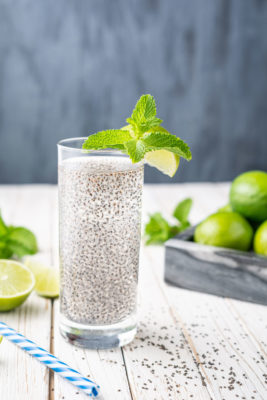Tim Spector’s 6 Golden Rules For Health
By
6 months ago
The gut health guru's guiding principles for nutrition

Tim Spector is the buzziest doctor of the moment. A champion of food as medicine – one of Mintel’s key food trends for 2025 – he has been a prominent voice in the nutrition space for some time now, but he’s firmly in the limelight right now thanks to his latest book The Food For Life Cookbook. Described as a ‘practical handbook’, it’s filled with recipes based around his six key principles for eating well.
What Is Tim Spector Famous For?
Tim Spector is a professor of genetic epidemiology at King’s College London, and an expert in the gut microbiome. He is also the co-founder of ZOE, a health and science company offering personalised nutrition programmes.
Over the past decade, Spector has penned numerous books, including The Diet Myth in 2015, the first introduction on the importance of the gut microbiome designed for a non-scientific audience. In 2020, he published Spoon Fed, a myth-busting book in which he reveals ‘why almost everything we’ve been told about food is wrong’. Next was Food For Life in 2022, a guide to eating well, which he has recently followed up with Food For Life Cookbook, complete with an array of recipes built around his fundamental nutrition rules.
Is Tim Spector Vegetarian?
Spector has long been an advocate for eating lots of plant-based foods. He is not vegetarian, however he says he rarely eats meat, and eats fish once or twice a week.
What Are Tim Spector’s Key Health Rules?
Eat 30 Plants a Week
Gone is the ‘five a day’ adage, now it’s all about eating 30 plants a week, according to Spector. ‘Diversity of plant species in our diet is more crucial for gut health than the specific type of diet we follow (vegan, pescatarian, carnivore, etc.).’ This is based on a 2018 study from the American Gut Project, run by the University of California alongside Spector, which saw researchers looking at the diets of thousands of people. It found the people who ate the largest variety of plant foods had the healthiest microbiomes.

Eat the Rainbow
Eating a range of different coloured foods is one of the most important things you can do for good health, according to Spector. In an Instagram post, he explained why, saying: ‘Plants often get their bright colours and bitter tastes from a group of phytonutrients called polyphenols. Studies have shown that polyphenols promote the growth of beneficial gut bacteria and may also inhibit “bad” gut bacteria leading to better gut health. This is because polyphenols act as prebiotics, meaning they reach the large intestine and are fermented by your gut microbes.’
He added: ‘When these polyphenols are broken down by your gut microbes, they release beneficial short chain fatty acids which can reduce inflammation and help to support your immune system.’ Spector recently highlighted the importance of consuming lots of leafy greens – particularly those with dark red or purple leaves, which often have the highest level of polyphenols.
Pivot Your Protein
Often, when we think of protein it’s meat and fish that spring to mind – yet Spector stresses that all plants contain all 20 amino acids (the building blocks of proteins). Speaking on the ZOE YouTube channel, he said: ‘People think you have to eat lots of steak or whey powder. You can get protein everywhere. Certain plants have more proteins than others but there are grains like quinoa, where 10 percent of it is protein. You’ve got pastas, where eight per cent is protein. Beans, legumes, chickpeas, lentils – there is masses of protein, often over 10 per cent and of different types of protein too.’
Give Your Gut a Break
Many nutritionists highlight the benefits of fasting, something Spector highlights as one of the key gut health principles. In his latest book, he discusses time-restricted eating: ‘a dietary approach that involves eating all of our food for the day within roughly the same time frame during daylight hours and fasting for the remaining hours, typically overnight.’ He recommends a fasting period of 12 – 14 hours as the ‘sweet spot’ for better metabolism and healthy weight maintenance. Personally, Spector begins his eating window at 10.30am, and stops eating at around 9pm.

Getty Images
Eat Fermented Foods Every Day
Fermented foods are one of the hottest topics in the nutrition world right now, and Spector played a big part in putting them on the map. Speaking to Liz Earle on the latest episode of her podcast, he recommended kimchi as one of the foods everyone should have in their diet, saying: ‘I’m going through the kraut and the kimchi like there’s no tomorrow, I add it to everything now and I’ve discovered that it does liven up all foods. People who aren’t used to it can start mixing it in initially and give it to their kids.’
Think Quality, Not Calories
Spector isn’t an advocate for calorie counting – in fact, he cites this as one of the reasons most diets fail. In his book, there’s no talk of portion sizes or calories, focusing instead on adding things to your plate which have nutritional value. However, there is one thing we should be reducing our intake of: ultra-processed foods. ‘Research has now clearly shown that UPFs make us feel hungrier, lead us to eat faster, overeat throughout the day and are associated with an increased risk of disease, mental illness and earlier death,’ he says.






